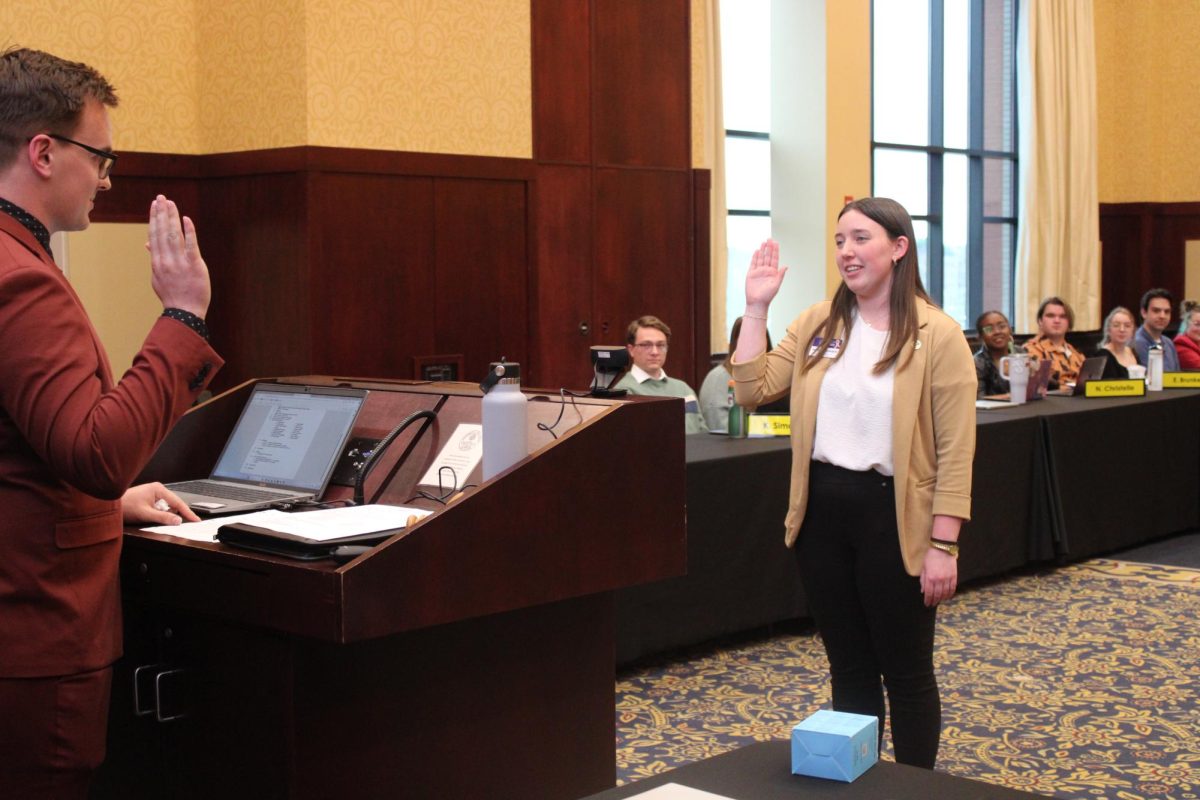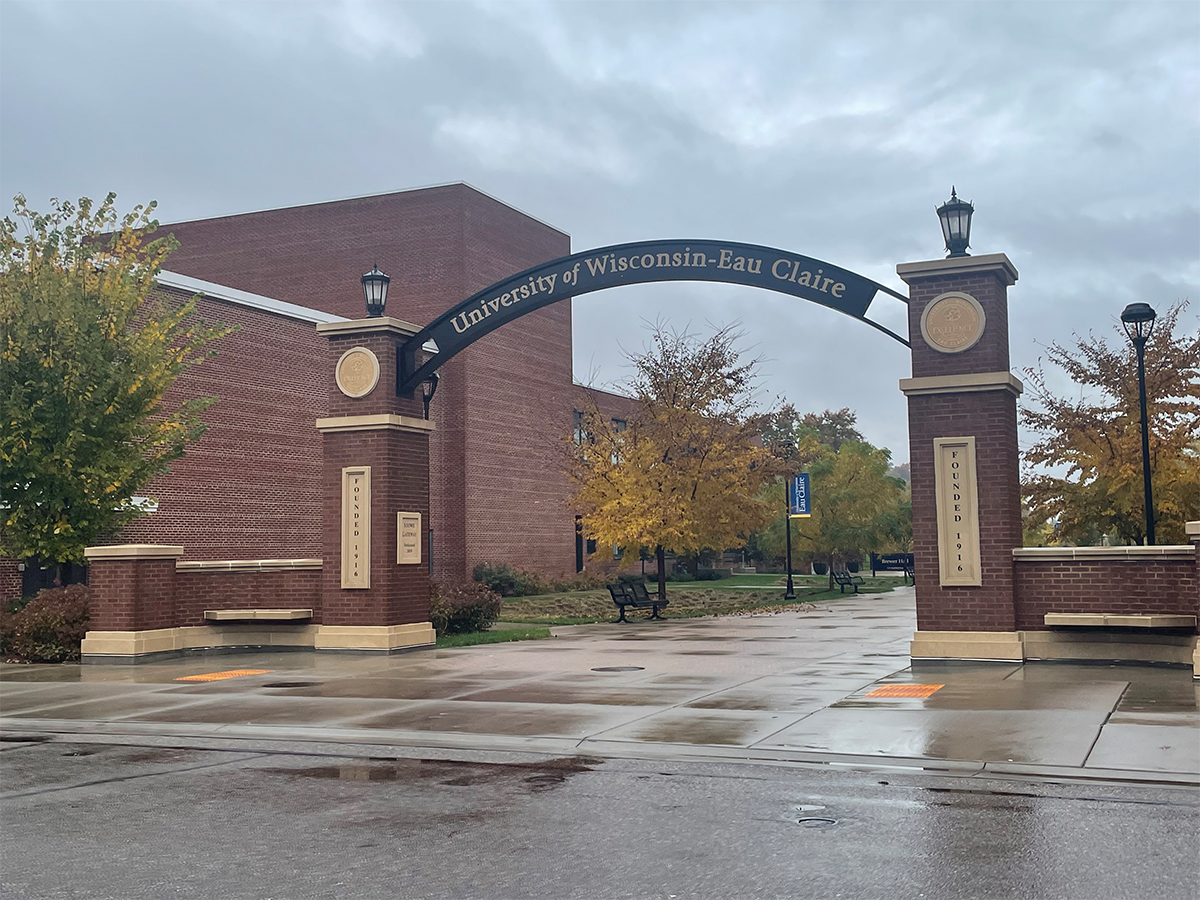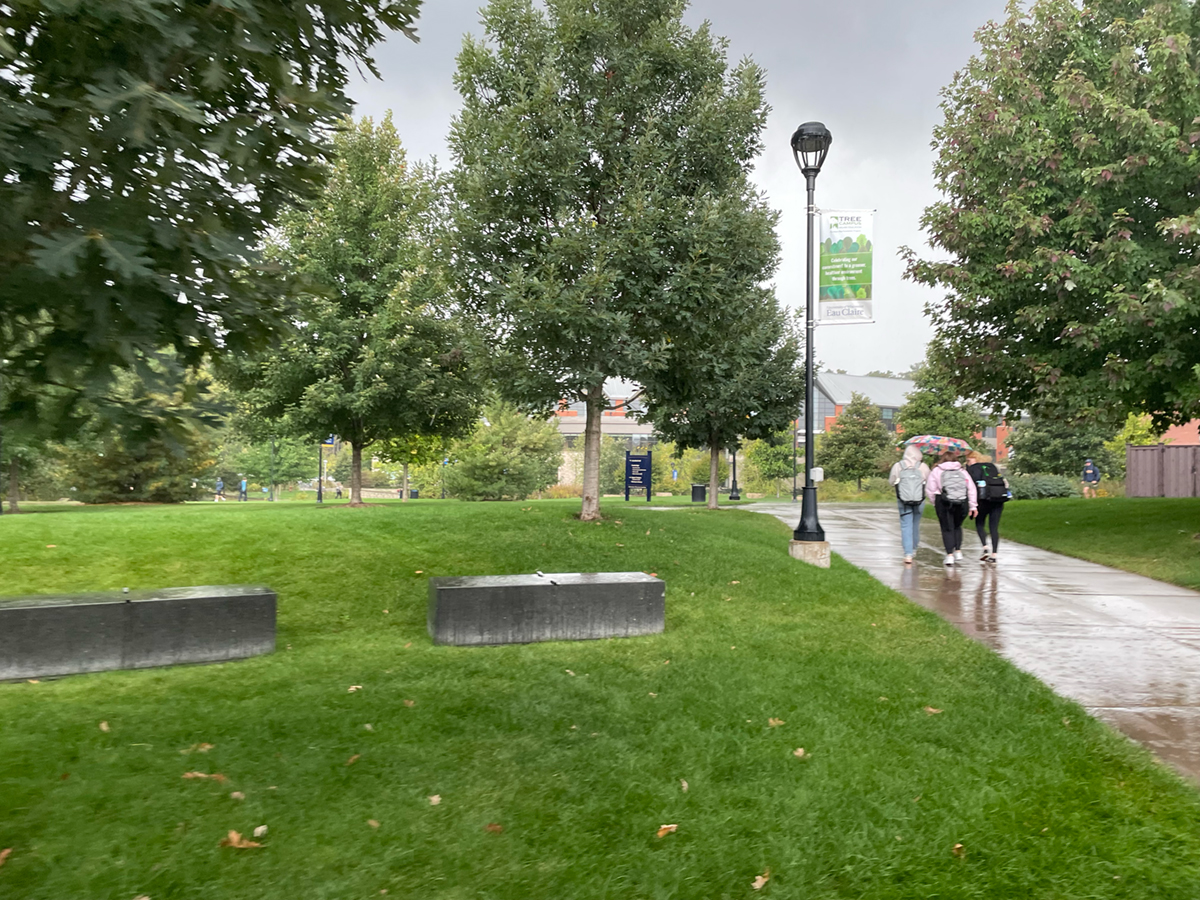College campuses across the country are experimenting with electronic textbook program meant to reduce complaints of back pain and make learning more interactive.
Electronic books and electronic book devices seem to be hit-or-miss with students, said Camille Weixel, UW-Eau Claire bookstore manager.
“I think some people are just afraid to try it,” Weixel said of e-books and e-book devices.
E-books can be transported on CD-Rom and e-book devices are book-reading devices that generally have enough memory to store up to 90 books.
She said Eau Claire does not offer e-textbooks and does not plan to anytime soon.
“I don’t see where it would benefit the publisher if they were to push electronic books on this campus,” Weixel said.
Schools that have gone to all e-textbooks say they have less complaints of back pain from students because they don’t have to carry heavy texts on their backs anymore.
Other advantages of e-books, Weixel said, are that users can do keyword searches to find a desired spot in the book quickly, get software updates for new versions of books and see enhancements, such as animations, graphics, video, audio and hyperlinks.
Senior Ben Tripoli still hesitates at the idea, saying traditional textbooks are easier on the eyes, more portable and longer lasting.
“One of the nice things about books is that you can put it on your shelf and 10 years later it will still work,” Tripoli said. “If you drop a real book, it may break the binding, but you can still read it.”
He said when his professors give information using the Internet, he still prints it out because it is easier to read and he knows he can read it wherever he is – even if no computer is nearby.
People read 20 percent faster from paper than from a screen, Weixel said. Whether students still prefer e-books may depend on what they read.
English classes that have experimented with e-book devices on other campuses have complained that poems are distorted because the screens are not wide enough to hold the original body of text, Weixel said.
In the future, e-books and e-book devices most likely will supplement rather than replace printed books because there are many advantages and disadvantages to them, she said.
Tripoli said he thinks the campus should look into them.
“It might be worth trying them out to see what people think on this campus,” Tripoli said. “But whether they are accepted is up to the students.”






